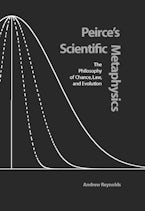- Home
- Habits of Hope

Habits of Hope
A Pragmatic Theory
In this original contribution to the American philosophical tradition, Patrick Shade makes a strong argument for the necessity of hope in a cynical world that too often rejects it as foolish. While most accounts of hope situate it in a theological context, Shade presents a theory rooted in the pragmatic thought of such American philosophers as C. S. Peirce, William James, and John Dewey.
Patrick Shade, an exciting new voice in the field of American philosophy, is an assistant professor of philosophy at Rhodes College, Memphis, Tennessee.
Shade's discussion is not only astute and satisfying, it is uplifting.
--Donald A. Crosby, Colorado State University
This is a carefully wrought study in the virtue of hope undertaken from a pragmatic point of view that engages other, more traditional, accounts of hope in a sympathetic and dialogical fashion. It provides a novel and deep analysis of this virtue that goes far in demonstrating how pragmatism can advance our moral understanding and be applied to issues that affect daily human concerns.
--Thomas Alexander, Southern Illinois University
Illuminated throughout by vivid illustrations from literature, film, and Shade's own personal experiences, this book is insightful and informative in its philosophical investigations of such topics as the nature of hope, the differences between realistic hopes and futile hopes that only waste our energies, ways in which examples of some persons' lives can kindle and strengthen hope in others, and how constructive habits of hope can be nurtured. Shade's discussion is not only astute and satisfying, it is uplifting. It inspires hope in readers by helping them to ponder thoroughly the central role it plays in human experience.
--Donald A. Crosby, Colorado State University











